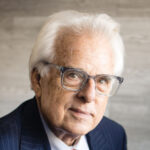I haven’t read Neanderthal Man: In Search of Lost Genomes, but a comment in Forbes about its content caught my interest.
Apparently, human babies quickly develop an interest, not only in surrounding objects, but also in what others think about them. From, “Neanderthal Man and the Science of Human Uniqueness,” by John Farrell:
One study, for example, reveals that, until about ten months of age, there are hardly any detectable cognitive differences between young humans and young ages: “However, at around one year of age, humans start doing something that the ape youngsters don’t: they start to draw others’ attention to objects of interest by pointing at them…It is the very act of directing the attention of another person that is fascinating to them…It seems that by about one year of age, they have begun both to discover that other people have a worldview and interests not so dissimilar from their own and to take steps toward being able to direct the attention of others. (p. 205)”
This compulsion to direct the attention of others, Pääbo goes on to suggest, is one of the first cognitive traits that emerge during childhood development that is truly unique to humans. Even more interesting is the fact that it’s not directly related to intelligence, so much as it is to a theory of mind, an appreciation that other individuals have different perceptions than one’s own.
This is relevant to the weave of human exceptionalism.
Only we make moral distinctions. Only we develop world views and come to differing opinions. Only we have the ability care about what others think about the same subjects.
This dramatically distinctive aspect of–yes, human nature–clearly develops early because it is hard-wired somehow into us. We all possess it, and it will express unless remaining latent due to immaturity or is disabled somehow by catastrophic illness or disease.
From this important element of our being flows the streams of unique value and moral accountability–which rank high among the exceptional hallmarks of man.
Author Profile

Latest entries
- BlogJanuary 27, 2015Ready or Not: Here Comes 2015 in Bioethics!
- BlogOctober 20, 2014A Case of Surrogacy’s Gordian Knot
 BlogAugust 19, 2014Transhumanism’s Eugenic Authoritarianism
BlogAugust 19, 2014Transhumanism’s Eugenic Authoritarianism- BlogAugust 13, 2014Suicide Cult Pushes Home Made Suicide Kits

